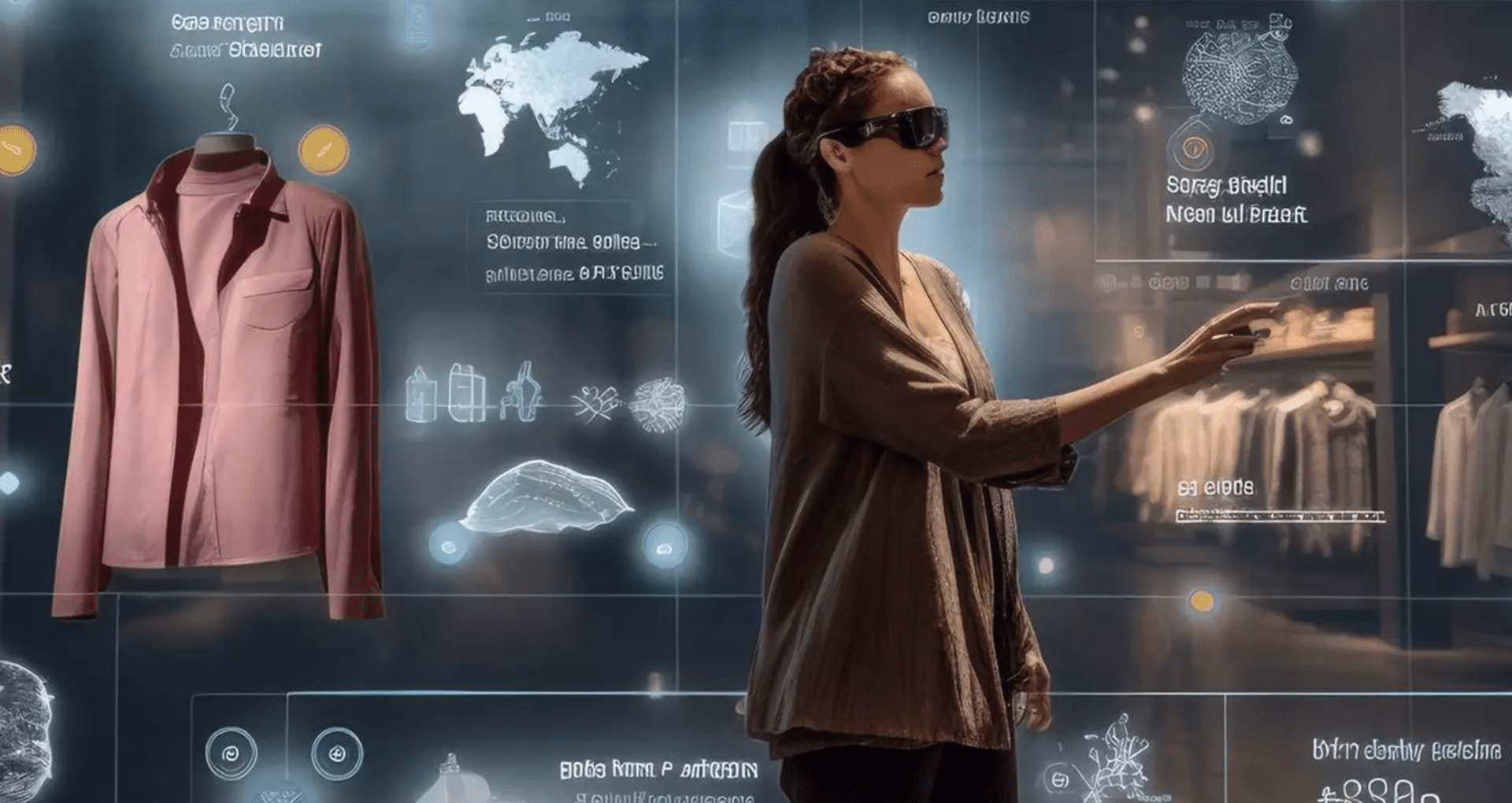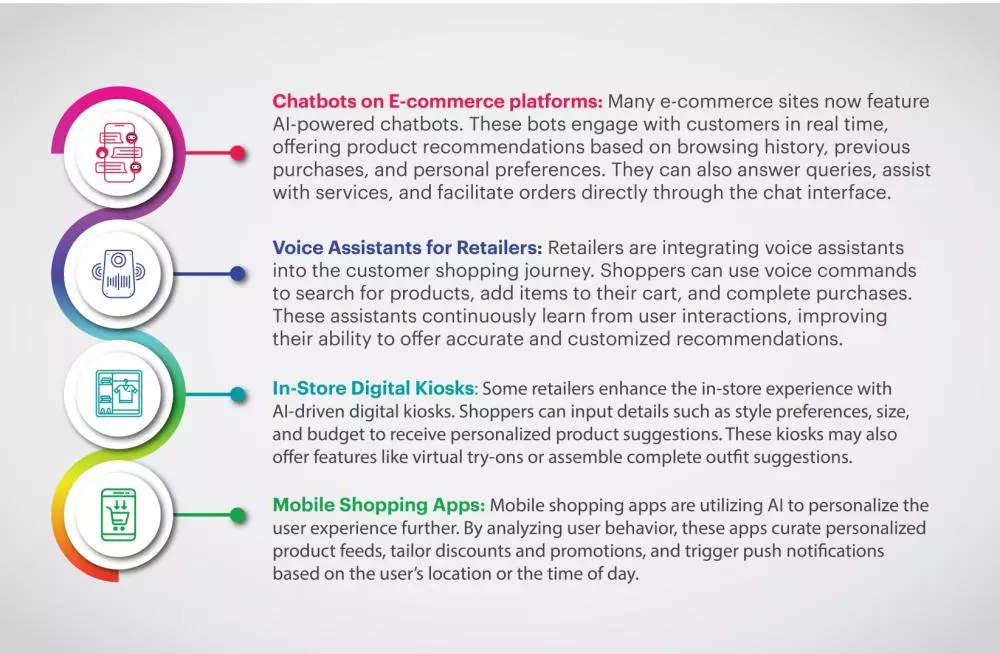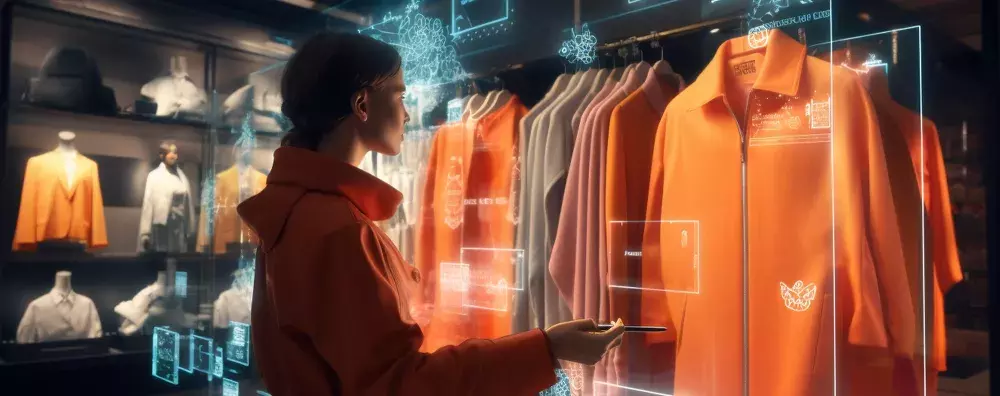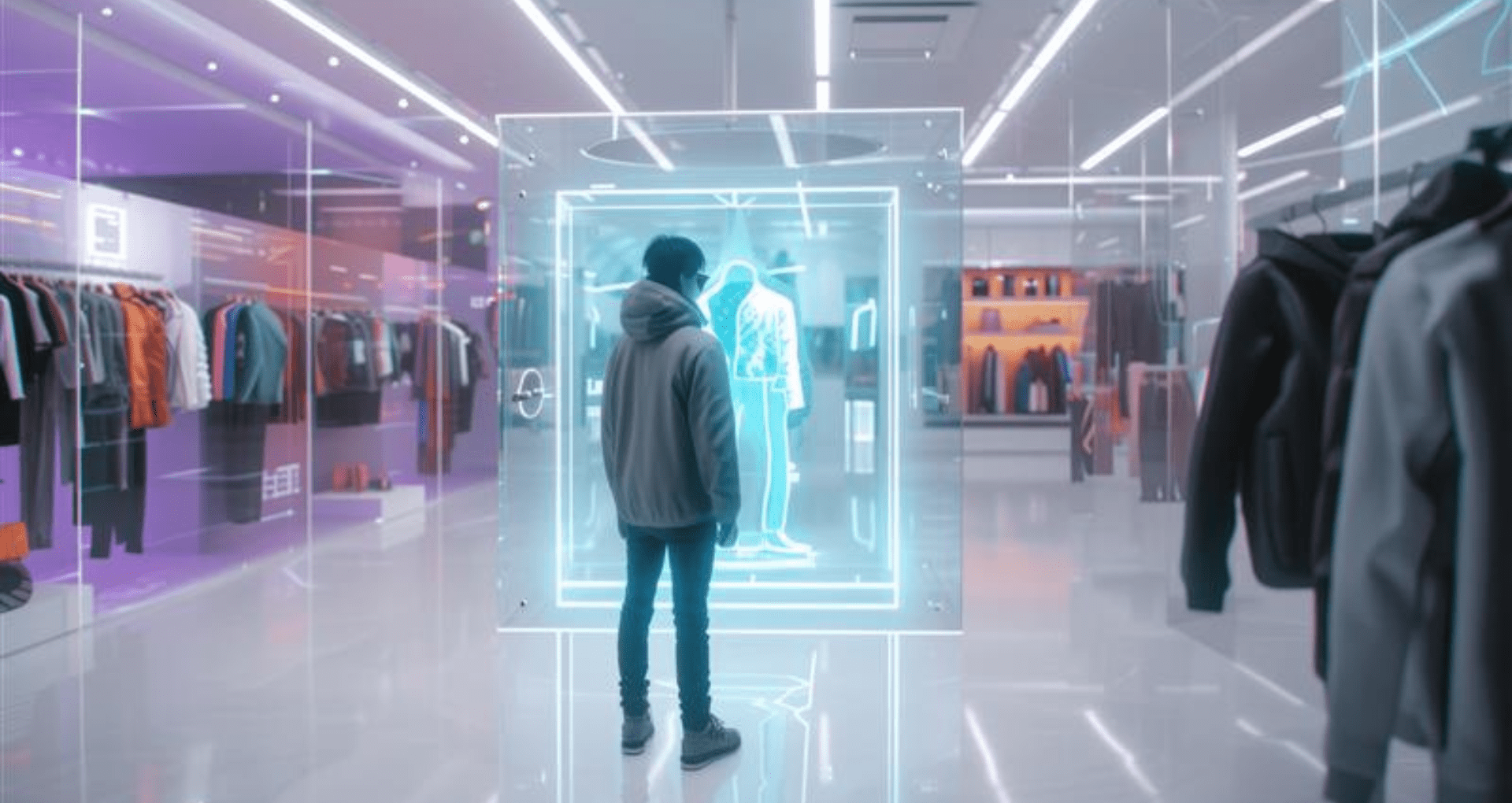Today, if there is one topic that unites businesses and technologists in a shared dialogue, marked by equal parts interest and enthusiasm– it is General AI. From startups to mid-sized organizations to large enterprises, there’s a universal eagerness to engage with this groundbreaking technology. Although many industries are still exploring Gen AI through nascent or small-scale experiments, retail has made significant strides. This sector has embraced General AI with open arms, leveraging it to pioneer a shift towards more personalized customer experiences.
Gen AI has indeed emerged as a transformative force, creating a reality where its presence is not just valued but deemed essential. The consequence of the steady inroads it is making is witnessed in the seamless implementation of a hybrid model in retail that blends online and in-store experiences. This evolution springs from a dramatic change in consumer habits triggered by the pandemic.
In this blog I intend to give you a quick tour of this fascinating and interesting space that is emerging. Join me in exploring how technology is not just influencing this realm but is also driving differentiation by creating advantages and opportunities.
Gen AI in retail personalization: A plethora of possibilities
In the aftermath of COVID-19, consumer behaviors and patterns have undergone significant transformations, particularly regarding brand loyalty and the demand for bespoke experiences. This shift necessitated a pivotal change in how technology is utilized, compelling businesses to adopt a more agile approach to personalization and adaptation. With the advent of groundbreaking technologies such as Gen AI, we are now equipped to implement changes and personalize experiences at an unprecedented speed, revolutionizing the way we engage with consumers and meet their evolving needs.
Personalization is not a new concept in retail but is certainly one of the most interesting outcomes that a lot of retailers are excited about. The depth and breadth of personalization possible with Gen AI are unprecedented. In the past, personalization could have involved sending an email to a consumer and addressing them by name. Personalized product suggestions, customized shopping experiences, and dynamic content production that speaks to individual preferences and behaviors are all now made possible by Gen AI.
According to imrg report 74.7 % of consumers are more likely to make repeat purchases from more personalized brands.
Gen AI significantly enhances mobile adoption rates and customer engagement by fostering personalized interactions, thereby cultivating customer loyalty. Its capability to tailor the human experience on a nuanced level is profound, offering timely and relevant information without overwhelming the user. Gen AI enables a dynamic and customized mobile experience, adapting elements like layout and color to individual preferences. This bespoke approach, focusing on meeting specific customer needs, elevates the mobile experience, establishing a unique, one-to-one connection that distinguishes it in the digital landscape.
Gen AI leverages the algorithms and the power of machine learning from customer data, including past purchase behavior, browsing history, and preference, to provide the most personalized of interactions. In addition to improving the shopping experience, this degree of personalization strengthens the bond between the customer and the brand, boosting conversion rates and loyalty.
Generative AI is transforming the shopping experience in several innovative ways:
Transforming marketing and advertising
With a focus on delivering the right message to the right person at the right time, marketing and advertising in the digital age have grown more and more data driven. This accuracy could reach unprecedented levels thanks to Gen AI.
The level of personalization Gen AI brings allows you to create marketing content that will resonate with individual preferences and behaviors. The dynamic ad creation of Gen AI will allow the changes and personalization in real time according to the users’ interactions and data of the displayed advertisements. This makes certain that the marketing message is relevant and hence will trigger increasing engagement rates and finally conversion rates.
Enhancing retail operations with Gen AI
Beyond applications that interact with customers, Gen AI is transforming back-end processes and improving the responsiveness and efficiency of retail workflows.
For instance, inventory management, which is usually a complex and resource-consuming process behind the scenes can be optimized greatly with the help of Gen AI. The algorithms can read data by going through the sales numbers, predict demand patterns, and recommend optimal levels of stock to be maintained so that there is no overstock or ‘stockout’ situation. Imagine how this would contribute positively to operational efficiency and all this while ensuring that customers find what they look for, thus enhancing customer satisfaction.
The second major area that Gen AI is bound to impact in a big way is supply chain optimization. Gen AI can bring in the ability to collect and process data up and down the pipeline to develop models that predict disruption in the process, identify the most efficient paths, and even reach out to other suppliers as part of creating an efficient and well-responding supply chain.
Navigating the challenges of Gen AI adoption
While the retail sector is showing great promise with respect to the adoption of Gen AI, it definitely is not a smooth sail – especially in the context of challenges vis-a-vis data privacy and security. These two concerns certainly cannot be overlooked in today’s backdrop.
AI literacy and the development of the required infrastructure are crucial right now as technology is becoming more and more integrated into daily business operations. Retail business owners need to adopt a strategic approach in implementation that has strong data management, investments in training for employees, and ensuring the use of AI-safe solutions.
Ethical considerations and responsible Gen AI in retail
The ethical implications of this technology must be addressed as the use of Gen AI in retail grows. Retailers face a number of ethical challenges, including the possibility of bias in AI algorithms, data privacy issues, and employment effects.
Retailers need to make sure that Gen AI systems are inclusive, transparent, and fair in order to prevent biases that might cause particular customer groups to be treated unfairly. Furthermore, data security and privacy are non-negotiable today. The government stipulated regulatory frameworks such as European Union’s General Data Protection Regulation (GDPR), call for strict measures to protect consumer information.
Responsible AI also takes into account the social aspect, particularly in the employment sector, where reskilling and upskilling of the workforce will undoubtedly be necessary due to AI’s increasing automation of tasks.
According to the World Economic Forum, by 2025, half of the workforce will require retraining in order to incorporate new technologies. With a workforce that is becoming more and more AI-compliant, the investment in people enables a smooth transition for more strategic and less repetitive tasks.
The Future of retail with Gen AI
The potential applications of Gen AI in retail seem endless. The future of retail is expected to be more inventive, efficient, and focused on the needs of the consumer, with everything from highly personalized shopping experiences to fully automated supply chains. Imagine Gen AI-powered virtual changing rooms that allow consumers to virtually try on clothing in the comfort of their own homes! This could lower return rates and increase customer satisfaction.
Further, there is immense potential in Gen AI to integrate with technologies such as 5G, the Internet of Things (IoT), and blockchain.
The retail industry is set to undergo a significant transformation with the possibilities of Generative AI. This transformational technology is the key to unlocking new levels of efficiency and personalization, from changing marketing strategies to streamlining operations and improving customer experiences.
The future of retail will undoubtedly be shaped by those who, as we approach this new era, not only embrace Gen AI but also do so in a responsible and ethical manner, placing the customer at the centre of their digital transformation strategies. One thing is for sure: the retail landscape will never be the same despite the exciting and intimidating road ahead.
Download the whitepaper: Generative AI: On the cusp of a groundbreaking paradigm shift?
Collaborate with InfoVision for smart AI Solutions
At InfoVision, we are at the forefront of transforming our retail partners by helping them incorporate generative AI into their business landscape. With our wide range of services – including Data Analytics, Data Science, Data Engineering, AI/ML, and more – we can leverage the potential of Gen AI to create customized solutions that address both comprehensive or specific business needs.
InfoVision has been a part of many transformation Journeys in Retail solving some of the critical customer/business problems like Personalization of rewards & loyalty, Omnichannel experiences, Store experience transformation, Point of sale implementation, virtual tryon’s, and AR experiences.
Dive deeper into the subject and gain diverse insights by watching our webinar, where I engage in a comprehensive discussion on the General AI Revolution in Retail with industry leaders. This session promises to enrich your understanding with varied perspectives and expert analysis.
Connect with us at digital@infovision.com










